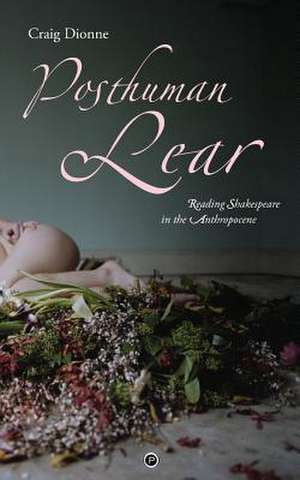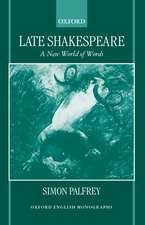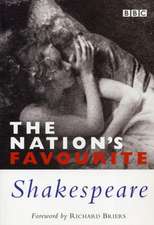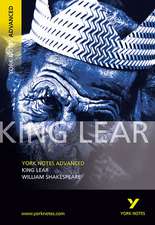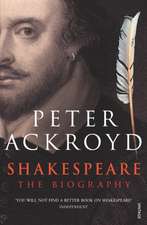Posthuman Lear
en Limba Engleză Paperback
Preț: 133.55 lei
Nou
Puncte Express: 200
Preț estimativ în valută:
25.56€ • 26.63$ • 21.25£
25.56€ • 26.63$ • 21.25£
Disponibil
Livrare economică 21 ianuarie-04 februarie 25
Preluare comenzi: 021 569.72.76
Specificații
ISBN-13: 9780692641576
ISBN-10: 0692641572
Pagini: 202
Dimensiuni: 127 x 203 x 12 mm
Greutate: 0.25 kg
Editura: Punctum Books
ISBN-10: 0692641572
Pagini: 202
Dimensiuni: 127 x 203 x 12 mm
Greutate: 0.25 kg
Editura: Punctum Books
Notă biografică
Craig Dionne is Professor of Literary and Cultural Theory at Eastern Michigan University, where he teaches Shakespeare and Early Modern English Literature. He specializes in Shakespeare and popular culture, early modern literacies and cultural studies. He has co-edited Disciplining English: Alternative Critical Perspectives (with David Shumway, SUNY Press, 2002), Rogues and Early Modern English Culture (with Steve Mentz, University of Michigan Press, 2005), Native Shakespeares: Indigenous Appropriations on a Global Stage (with Parmita Kapadia, Ashgate, 2008), and Bollywood Shakespeares (with Parmita Kapadia, Palgrave, 2014). He was senior editor of JNT: Journal of Narrative Theory for ten years, and he also co-edited the inaugural issue of postmedieval: a journal of medieval cultural studies (with Eileen Joy, Palgrave, 2010).
